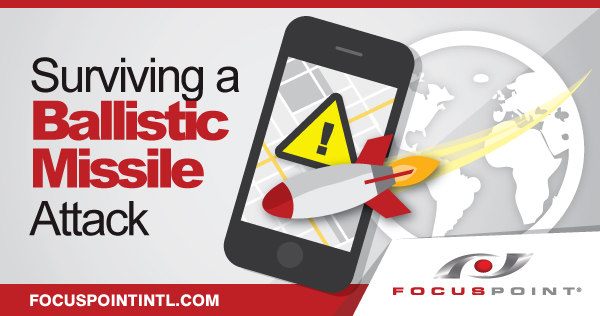Surviving a Ballistic Missile Attack
Randy Haight
Hawaii; it has always been my ‘happy place’. I try to visit Hawaii at least once a year to decompress. It has everything I need: surfing, skydiving, warm water and beautiful beaches.
I had just hit the morning surf and was returning to my hotel room to wake my wife. It was just after 8:00 AM on January 13th when my phone began chirping with what I thought was an amber alert. I ignored it, as I entered my hotel room. My wife was already awake and looking at her phone. She said, “You better look at your phone.” That is when I read the alert.
“EMERGENCY ALERT
BALLISTIC MISSLE THREAT INBOUND TO HAWAII. SEEK IMMEDIATE SHELTER. THIS IS NOT A DRILL.”
I had to read it three times to ensure my eyes were not playing tricks on me. As much as I tried, I could not see the words I was hoping to find – this is a test, or this is a drill. Then it hit me – this was real!
We started getting dressed. I told my wife to put on street clothes and running shoes. I checked the television, and the same emergency alert message was scrolling across the screen. I read and re-read it, hoping it was a mistake.
Oddly, my hotel was not broadcasting any warnings over the PA system. When I went out into the hallway, I noticed several housekeeping carts abandoned outside my door. So I helped myself to two cases of bottled water and spare sheets. I brought these supplies into our room and ran to the lobby and went to the ATM to withdraw $1,000 in cash. I quickly returned to my room and closed the windows and drapes and moved to the bathroom.
Being the Director of Global Response for FocusPoint International, I am responsible for deploying teams to various parts of the world to support clients in crisis. Instead of directing support, I was now going to be right in the middle of it – ground zero.
I attempted to call our Crisis Response Center; a 24-hour operations center staffed with operations support specialists – the nerve center of our global response efforts. Unfortunately, my calls would not go through. The cellular telephone system was already overwhelmed with callers. However, I was able to text the operations center, and I received an immediate response. I sent them a screenshot of the alert and asked them to forward me any information they could. I then sent them my GPS coordinates in case we survived the initial blast, so rescuers would be able to locate us if the building collapsed or was underwater.
I grabbed my IFAK, (Individual First Aid Kit) which I always carry with me, even on vacation. Mine is stocked with trauma supplies: several tourniquets, hemostatic agents, bandages, and wraps. I reminded my wife what was in the kit and went over how to use the tourniquets, etc. I sent a quick text to my kids telling them that their mother and I loved them.
We waited.
My cell phone chirped with an incoming message. It was from our operations center. It read, “Representative Tulsi Gabbard from Hawaii is reporting that the alert was a mistake. False alarm. You can stand down dude.”
Within 38 minutes, it was over. I hugged my wife, and we began laughing hysterically. Glad to be alive.
Several things to keep in mind when in a crisis:
- The government, other authorities or establishments are not going to be able to help you in the initial hours or days of a crisis. I have seen and experienced it first-hand as a crisis responder. As in this case, the hotel was of no use, as we received no warning or direction.
- Wear sensible clothes. You are going to be climbing out or over rubble. Shorts, flip-flops, high-heels, dresses or swimwear are not advisable.
- The telephone system will be one of the first things to fail. Everyone will be trying to call someone in a crisis. However, text messages use a different channel than voice traffic and take up less bandwidth. All of my text messages got through.
- For those of you who have access to a Satellite Telephone (SATPHONE), I would highly recommend keeping it handy. These devices may work when the landline and cellular telephone systems fail.
- GPS coordinates are the best way for properly trained responders to find you. I carry a GPS unit with me, even on vacation. However, most smartphones have a function that allows you to get your GPS coordinates. The Compass app is free and preloaded on most iPhones.
- In a major crisis, cash is king. Credit cards and ATMs will not be working.
- Having a basic First Aid Kit, even when on vacation might just be a pretty handy thing to have.
- Potable water is a must.
- Not everyone will have a 24-hour operations center to call unless you happen to be a Crisis Assistance Plus (CAP™) member. FocusPoint International offers short-term and annual travel risk memberships that allow you full access to our Crisis Response Center. If you ever need assistance, the Crisis Response Center will be at your fingertips.

